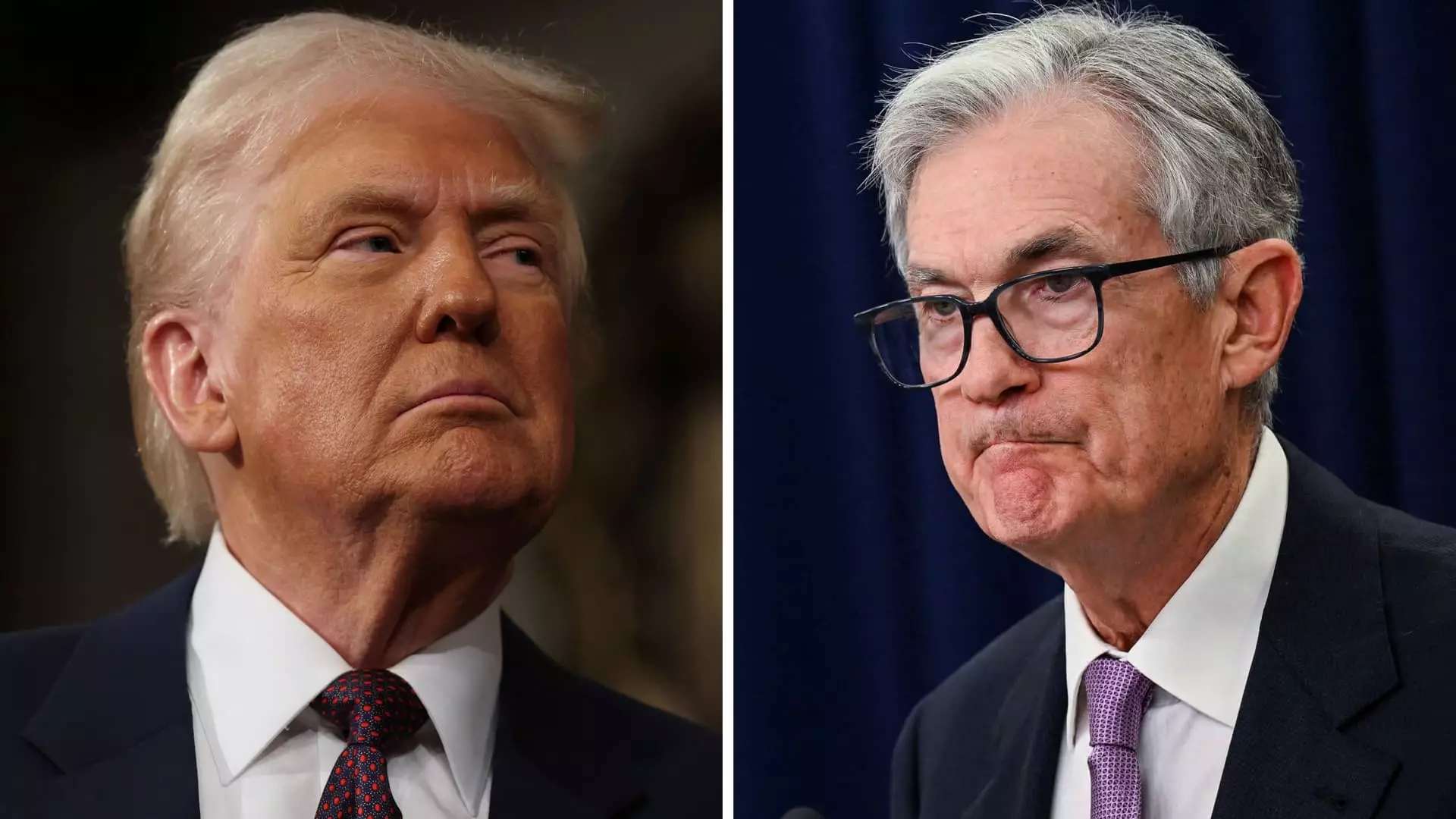In a recent tirade, President Donald Trump launched another verbal assault on Federal Reserve Chair Jerome Powell, encapsulating his government’s palpable dissatisfaction with monetary policy leadership. His discontent reached a pinnacle during a Q&A session, where he asserted, “If we had a Fed Chairman that understood what he was doing, interest rates would be coming down, too.” This sentiment not only reflects a dangerous attempt at scapegoating but also reveals an astonishing misunderstanding of the complexities of economic policy. The president’s inclination to lash out at Powell seems less about economic strategy and more about diverting attention from the myriad challenges faced domestically and globally.
Trump’s repeated demands for interest rate cuts signal an alarming desire to manipulate economic levers for personal and political gain. It exhibits a disconcerting trend wherein economic leadership is compromised by political rivalry and rhetoric. For a leader to vilify the head of an independent institution like the Federal Reserve is deeply problematic; it not only undermines the credibility of such agencies but also threatens the stability of the financial system itself.
Sowing Seeds of Economic Instability
The political machinations surrounding Powell’s position serve as a warning sign of impending volatility. Trump’s cache of discontent culminated in a Truth Social post declaring, “Powell’s termination cannot come fast enough,” alongside the derisive moniker “Too Late.” Such language insinuates a desire for retribution rather than rational economic discourse. This habit of personalizing disputes trivializes the essential role that the Fed plays in steering the economy through turbulent times. For all of Trump’s rhetoric about economic prowess, he consistently neglects the foundational principle of accountability, especially when outcomes are less favorable.
Moreover, discussions around Powell’s potential dismissal are fraught with peril. Economic adviser Kevin Hassett’s statements hint at this administration’s ongoing contemplation, underscoring a willingness to explore legal pathways for removal. However, it raises an ethical question: Should the president be able to fire the Fed chairman merely because the economic policies don’t align with his interests? The effectiveness of monetary policy is not dictated by popularity but rather by a competent analysis of economic indicators and forecast models. Disregarding this truth for political ends could leave the U.S. economy grasping at straws.
The Existential Threat to Market Stability
Democratic leaders, including Senator Elizabeth Warren, have fired back against Trump’s musings, elucidating a crucial point: “If Chairman Powell can be fired by the president of the United States, it will crash markets in the United States.” This statement encapsulates a critical fear—not just of Trump’s incendiary rhetoric but of the unsettling notion that the president’s whims could decide the fate of crucial financial institutions. Such actions could spiral, leading to unpredictable market responses and exacerbating the very economic issues Trump claims to want to resolve.
Trump’s current frustrations align closely with Powell’s recent remarks on the dual mandate of price stability and maximum employment. Powell has indicated that the current tariff policies could create inflationary pressure and hinder economic progress. Yet, rather than engaging in substantive debate about the merits of these policies, Trump retaliates by maligning the person at the center of monetary authority, effectively ducking the multifaceted challenges faced by economic policymakers today.
Inflation and the Fickleness of Political Influence
Perhaps one of the most dangerous elements of Trump’s crusade is its potential to instigate a climate of distrust in economic forecasting. The Federal Reserve operates under principles rooted in data analysis and economic theory; when a sitting president undermines this institution to placate political grievances, it risks setting a precedent that prioritizes short-term political gain over long-term economic prudence.
This volatile atmosphere could deter investment, reduce consumer confidence, and ultimately lead to a self-fulfilling prophecy of downturn. With mounting criticisms, Trump’s administration seems to be venturing towards an ideological battleground rather than focusing on coherent strategy and governance. The positive economic narratives trumpeted by the administration perpetuate a façade that fails to address the underlying issues at hand, subjecting the American populace to the fallout of political grandstanding.
As the drama unfolds, it becomes crucial to question not only the feasibility of Trump’s ambitions to reshape the Federal Reserve but also the broader implications of political interference in economic institutions that must remain insulated from temporary whims. The very principles of an open market and accountable governance hinge on the integrity of independent agencies, and any deviation from that could have devastating consequences for the economic landscape of the United States.


Leave a Reply